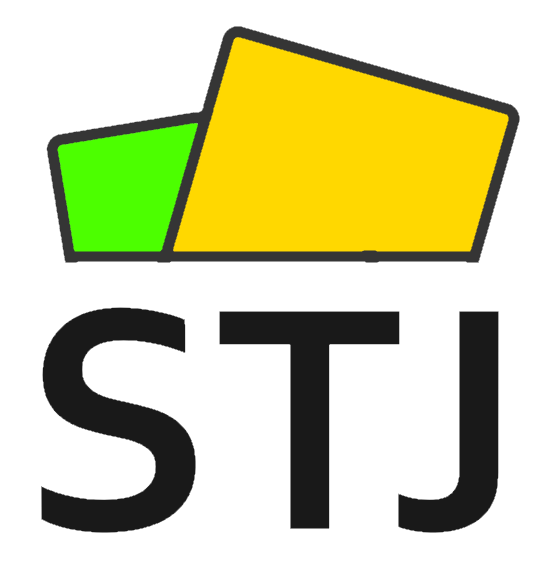
Programming Challenges: Fun Ways to Sharpen Your Skills in 2025
Share
Introduction
Programming is an ever-evolving field that requires constant practice and learning. Whether you’re a beginner or a seasoned developer, engaging in programming challenges is one of the best ways to keep your skills sharp, expand your knowledge, and boost your confidence. But why settle for traditional methods when you can make learning fun?
This guide will walk you through creative and exciting ways to tackle programming challenges in 2025, packed with tips, tricks, and resources to make your journey both productive and enjoyable.
1. The Benefits of Programming Challenges
Before diving into specific methods, let’s understand why programming challenges are so effective:
- Problem-Solving Skills: They teach you to break down problems into smaller, manageable tasks.
- Mastery Through Practice: Repeatedly solving problems reinforces syntax, algorithms, and data structures.
- Real-World Applications: Challenges simulate real-world scenarios, preparing you for projects and interviews.
- Boost Confidence: Successfully solving challenges builds your confidence as a programmer.
- Learn New Techniques: Exposure to different problems introduces you to new tools, methods, and coding paradigms.
2. Types of Programming Challenges
Here are the different types of programming challenges to explore:
a. Daily Coding Challenges
Platforms like Advent of Code, Codewars, and HackerRank offer daily challenges to keep you engaged.
- How to Get Started: Commit to solving one challenge per day.
- Pro Tip: Choose challenges slightly above your current skill level to push yourself.
b. Competitive Programming
Take part in contests on platforms like Codeforces or LeetCode.
- Benefits: Compete against others to improve speed and accuracy.
- Pro Tip: Focus on common contest topics like dynamic programming and graph theory.
c. Open-Ended Challenges
Create projects based on open-ended prompts, such as building a game or a small app.
- Why They Work: Encourage creativity and simulate real-world tasks.
- Example: Use your favorite programming language to build a budgeting app with unique features.
d. Gamified Challenges
Use tools like our Python Deck to turn problem-solving into a game.
- Benefits: Combines fun and learning, ideal for solo practice or group competitions.
3. Strategies for Tackling Programming Challenges
a. Break Problems into Smaller Steps
- Why It Helps: Large problems can be intimidating; breaking them into smaller steps makes them manageable.
- How to Apply: Identify inputs, outputs, and the sequence of steps to solve the problem.
b. Practice Debugging Skills
- Why It’s Important: Debugging is a critical skill for identifying and fixing errors in your code.
- Pro Tip: Use print statements or debugging tools like Visual Studio Code’s debugger to track variable states.
c. Focus on Algorithm Optimization
- How to Approach: Solve a problem multiple times with different algorithms, aiming to reduce runtime complexity.
- Example: Compare brute force, divide-and-conquer, and dynamic programming approaches to solving the same problem.
4. Tools and Resources for Programming Challenges in 2025
a. Online Platforms
- LeetCode: Great for interview preparation.
- HackerRank: Offers a variety of problem types and skill tracks.
- Advent of Code: Fun, holiday-themed challenges for December.
b. Gamified Learning Tools
Our Python Deck and other coding card games are perfect for making learning enjoyable.
c. Visual Learning Aids
Use posters or diagrams to visualize data structures and algorithms.
5. Group Challenges and Competitions
a. Host Friendly Competitions
- Invite friends or colleagues to solve challenges together.
- Use tools like coding card games to introduce a competitive, yet fun element.
b. Join Hackathons
- Collaborate with others on real-world projects.
- Develop teamwork and problem-solving skills.
6. Practical Tips to Maximize Your Learning
a. Track Your Progress
- Keep a journal of the challenges you solve, including the strategies you used.
- Reflect on what you learned from each challenge.
b. Repeat and Reinforce
- Revisit older challenges to reinforce concepts.
- Try solving them in a different language or with a more efficient algorithm.
c. Balance Practice with Theory
- Dedicate time to understanding underlying concepts like Big-O complexity.
- Apply theoretical knowledge to practical problems.
d. Use Flashcards for Quick Review
- Keep flashcards handy to review syntax and algorithms between challenges.
7. Fun and Creative Challenges for 2025
a. Build a Bot
- Create a chatbot or a game-playing bot for Tic-Tac-Toe or Chess.
b. Automate a Task
- Write a script to automate mundane tasks like renaming files or scraping data.
c. Solve a Puzzle
- Use code to solve classic puzzles like Sudoku or the Tower of Hanoi.
d. Design a Game
- Develop a simple game, such as Snake or Flappy Bird, to learn about graphics libraries.
8. Avoiding Burnout
a. Take Breaks
- Practice the Pomodoro technique: 25 minutes of focus followed by a 5-minute break.
b. Rotate Topics
- Switch between data structures, algorithms, and project-based challenges to keep things fresh.
c. Celebrate Milestones
- Reward yourself after completing significant challenges to stay motivated.
9. How to Get Started
- Choose a challenge type that excites you.
- Set clear goals, like solving 5 problems a week.
- Equip yourself with tools like the Python Deck to make learning interactive and fun.
Conclusion
Programming challenges are a fantastic way to sharpen your skills, learn new techniques, and have fun while doing so. By incorporating these tips and tricks, you’ll make steady progress in 2025 while staying motivated and engaged.
Start your journey today with our Python Deck, and turn coding challenges into an exciting adventure!



